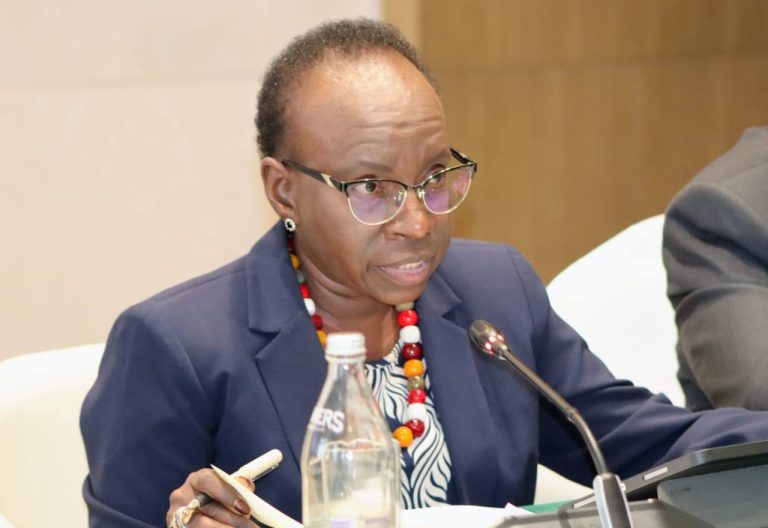Gathungu reveals Ksh2M loss in overpriced laptops and iPads at Higher Education Department
By Mercy Mwai, June 3, 2025Auditor-General Nancy Gathungu has unearthed how the Higher Education Department inflated the cost of acquiring laptops and iPads by more than 200 per cent.
In her report for the financial year 2023/2024, Gathungu disclosed that although the management was expected to procure a single MacBook laptop at a unit cost of Ksh180,000 and an iPad 4 at Ksh360,000, the management acquired each MacBook laptop and iPad 4 at a cost of Ksh499,320 and Ksh460,000, respectively.
Following the move, the management ended up spending Ksh2.1 million more on the procurement of six MacBooks and two iPad 4, as it spent Ksh2.99 million to procure six laptops, which would only have cost Ksh1 million and Ksh920,000 for two MacBooks that would have cost Ksh720,000.
This, Gathungu said, is contrary to Regulation 51(2) of the Public Finance Management (National Government) Regulations, 2015, which requires that expenditure commitments for goods and services shall be controlled against spending and procurement plans approved by the responsible Accounting Officer, based on allocations and allotments from approved budgets.
“In the circumstances, value for money on the procurements amounting to Ksh2,995,920 and Ksh920,000 in respect of six (6) MacBook laptops and two (2) iPad 4 respectively, could not be confirmed,” the report reads.
Non-compliance
The department has also been fingered over irregular use of direct procurement, engaging in cash procurement beyond allowable limits, non-compliance with Procurement Procedures, failure to Surrender Imprests in due time as well as Irregular engagement of casual employees with regard to various donor-funded projects.
On non-compliance with procurement procedures on request for quotation, she raised concerns over Ksh2.5 million used in the procurement of air tickets, where a number of irregularities were noted.
She noted that on the request for quotation procurement method used, only two firm’s bids were received and evaluated as per the professional opinion, a move that was done contrary to Section 106(2)(d) of the Public Procurement and Asset Disposal Act, 2015 which requires evaluation to be carried out on at least three quotations.
“Further, Management did not provide the request for quotation register, tender opening minutes and evaluation minutes for audit review,” the report adds.
Servicing vehicles
On the use of the Direct Procurement Method, she disclosed that a review of records revealed that the amount was paid to a firm for servicing motor vehicles.
However, procurement records indicate that the service providers were single-sourced and did not meet the conditions of direct procurement as set out in Section 103(2) Public Procurement and Asset Disposal Act, 2015 which requires that a procuring entity may use direct procurement if any of the following are satisfied; the goods, works or services are available only from a particular supplier/contractor, or a particular supplier or contractor has exclusive rights in respect of the goods, works or services and no reasonable alternative exists.
On the use of cash Procurements Beyond Allowable Limits, she raised concerns over a sum of Ksh100,000 spent on purchases made by use of cash imprests.
According to her, the procurements were made in cash exceeding the cash purchase threshold of Ksh50,000 per item per financial year for goods and services required under the second schedule threshold matrix of the Public Procurement and Asset Disposal Regulations, 2020.
Further, cash procurements were not supported by the KRA Electronic Tax Receipt, duly signed by the person undertaking the low-value procurement of the services.
“In the circumstances, Management was in breach of the law,” the report reads.
On imprests, she disclosed that a review of the imprests records maintained by Management revealed that imprests were issued to various officers during the year, but were not surrendered as of June 30, 2024, yet the management did not explain the failure by the officers to surrender the imprest held as required.
This, she said, was contrary to Regulation 93(5) of the Public Finance Management (National Government) Regulations, 2015, which states that the holder of temporary imprests shall account for or surrender the imprests within seven working days after returning to the duty station.
“In the circumstances, Management was in breach of the law,” the report adds.
On the employment of casual employees, she raised concerns over an expenditure of Ksh545,091 paid to five casual employees working in the insect farm and laboratory sections of the Project.
The casuals, she revealed, were engaged continuously for a period of twelve (12) months from July 2023 to June 2024 which was contrary to Section 371(b) of the Employment Act, 2007 which stipulates that where a casual employee performs work that cannot reasonably be expected to be completed within a period, or a number of working days amounting in the aggregate to the equivalent of three months or more the contract of service of the casual employee shall be deemed to be one where wages are paid monthly.
